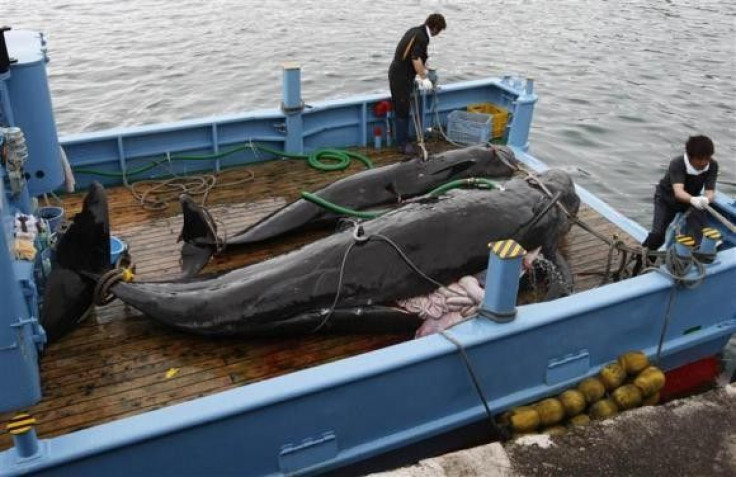Whaling ban helped replenish Australia's right whale population, but situation still alarming

Whaling activities are known to dwindle the population of marine creatures since time immemorial. One such era existed between 1790 and 1980 when the southern right whales were severely depleted and whaling led to a loss of more than 150,000 whales.
After more than 100 years of conservation and protection efforts, the population of the whales seems to have recovered in a majority of the areas. The whale population in the New Zealand sub-Antarctic and south west Australia are increasing at a steady pace. However, the progress has not been the same in mainland New Zealand and southeast Australia.
A team of researchers from different universities across Australia, New Zealand, US, UK, Scotland and Canada recently conducted a research to study the migration routes of these whales. The researchers are hopeful that the study findings may help explain the reason why the recovery rate in mainland New Zealand and southeast Australia has been a little slower than other regions.
Every July, these chales return to the sheltered inlets in south Australia to breed. They migrate between their breeding grounds off the coast of Australia and New Zealand and feeding grounds in the Southern Ocean, according to the Conversation.
In a study published in the journal Nature, the researchers say that migratory traditions between breeding and feeding or non-breeding type is a driver of the whale population across the migratory route. During the study, the researchers used the genetic and isotope data to determine the impact of fidelity to migratory destinations and study the structure of the whale population across migratory network.
The researchers found that when animals that show fidelity to a definite migration destination are lost, the memory of that destination is also lost.
“The effect is exacerbated when there is depletion across the migratory network, as was the case with whaling. This extirpation is likely contributing to the slow recovery of southern right whales in southeast Australia and mainland New Zealand,” the researchers wrote in the study.
Contact the writer at feedback@ibtimes.com.au, or let us know what you think below.






